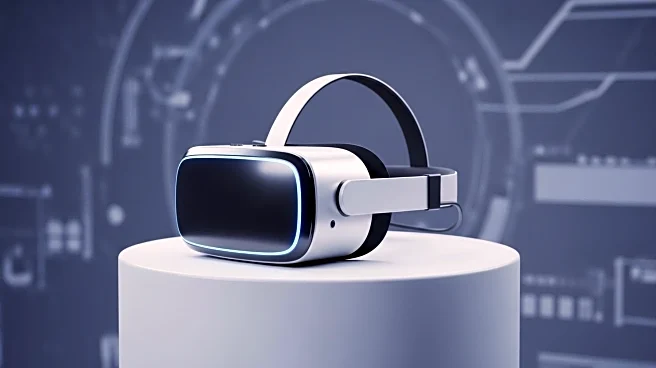What's Happening?
Meta's VR headsets, particularly the Quest series, have been increasingly used for fitness purposes, offering users a unique way to engage in workouts without the need for traditional gym equipment. The popularity of apps like Supernatural and Beat Saber highlights the potential for VR as a fitness tool. However, there is concern that Meta is not advancing its fitness offerings as rapidly as it could. Despite the benefits, issues such as headset size, weight, and battery life remain challenges. Additionally, Meta's removal of its fitness tracking app, Move, has disappointed users who relied on it for tracking workout metrics. The company is expected to introduce more fitness and health functions at its upcoming Connect developer conference.
Why It's Important?
The integration of fitness into VR technology represents a significant opportunity for Meta to differentiate itself in the tech market. As consumers increasingly seek convenient and engaging ways to maintain their health, VR fitness could become a major selling point. However, if Meta fails to innovate quickly, competitors like Google and Apple, who are also exploring fitness integrations, could surpass Meta in this domain. The potential for VR to serve as a portable gym is appealing to those who invest heavily in fitness equipment, making it crucial for Meta to enhance its offerings to capture this market segment.
What's Next?
Meta is anticipated to unveil new fitness-related features at its Connect developer conference, potentially including integrations with smart glasses and fitness apps. The company may also explore the development of its own fitness tracking devices. These advancements could solidify Meta's position in the VR fitness market, provided they address current limitations such as headset comfort and battery life. The outcome of these developments will likely influence consumer adoption and Meta's competitive standing in the tech industry.








